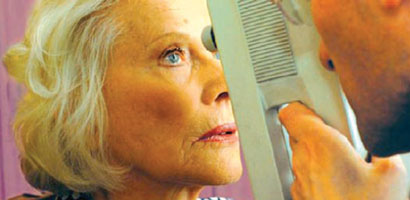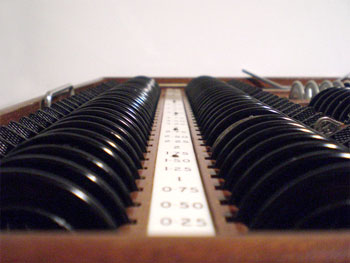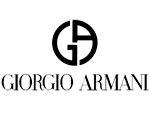Our Service 

We are an independent opticians formed by a small group of partners all of whom who have worked in the optical sectors for many years before venturing into this business. We initially started out with a small practice in West Hampstead, North West London. There, we used to conduct eye examinations for members of the public at the practice on premises as well as operate our home visiting optician service. As part of this service, we visit elderly and disabled patients who cannot normally attend a high street practice.
Shortly after, our patient base grew and along with it, the need for expansion. Hence we relocated to a larger practice situated on the busy Kilburn High Road, also in North West London, not too far from the first premises.
We have been steadily building our business, with new patients for both the practice and the home visiting opticians as our reputation has grown and we have become better known in the field.
We currently enjoy successful partnerships with numerous medical centres, hospital wards, nursing-homes and care-agencies. We pride ourselves on our ability to provide a flexible and affable service without compromising quality of care and clinical excellence.
We receive regular phone calls from primary care trusts and local care providers requesting eye examinations.
All of our clinical staff our fully qualified and are members of the General Optical Council, the regulating body for those involved in the sector. They also have member ship with the College of Optometrists, Association of Optometrists and Association of British Dispensing Opticians. They have been trained and are skilled in using the latest equipment provided both at the practice and specialist portable equipment to be taken to the home visits. All the equipment is modern and conforms to current requirements.
Since then, we have had a high demand to offer this service to corporate companies for employees at work, to enable them to access this service with ease and efficiency and with less hassle for both the employer and employee. Thus as a natural consequence, followed the launch of Eyegen Mobile Opticians- Complete Corporate Eyecare.
However, we remain committed to all three ventures as they all form integral part of our organisation.
Eye Diseases Amongst The Elderly 

There are several diseases that become more prevalent as people get older. They affect the vision and the health of the eye. Symptoms of these diseases can include blurred vision, things appearing to move, loss of certain areas of vision, changes in colour perception, and sensitivity to light amongst others. Below is a description of the most common diseases likely to affect the aging eye.
Cataract
Cataracts are the most common eye problem amongst the elderly, for people over 60. Cataracts are a clouding of the lens inside the eye, which is like the lens inside a camera. It makes the lens become like frosted glass, so that the eye can’t focus on objects clearly. Cataracts are easily treatable with a simple procedure. Early stage cataracts don’t even affect the vision and don’t need treatment.
Effects of cataract:
Blurry sight - Vision may seem misty, or hazy, as if glasses are scratched or dirty
Light sensitivity – may be dazzled by bright light or sunlight
Changes in colour perception – Colours may seem washed out or faded
Age Related Macula Degeneration (ARMD)
The light sensitive layer of the eye is called the retina. The most sensitive part of the retina which is responsible for reading fine print and colour vision is the macula.
There are two types of AMD – a wet form and dry form. The exact causes are unknown.
The dry form is more common (around 85% of people with AMD have the dry form). This is less severe and causes a much slower deterioration in vision over a longer period of time. Dry ARMD is caused when deposits, called 'drusen', form at the macular. Only your eye care professional can tell you which form you may have.
The wet form is more severe, but less common, and vision deteriorates quickly. Abnormal blood vessels grow under the macula which bleed and leak fluid and cause central vision to be distorted or destroyed. This is called 'choroidal neovascularization' (CNV).
Effects of AMRD:
Blurry sight - Blurring of central vision
Distortion of vision – lines may appear not to be straight or appear to move for example door frames
Changes in colour perception – Difficulty in seeing blue and yellow
Glaucoma
Glaucoma is the name for a group of eye conditions in which the optic nerve is damaged at the point where it leaves the eye. This nerve carries information from the light sensitive layer in the eye, the retina, to the brain where it is translated as a picture.
Your eye needs a certain amount of pressure to keep the eyeball in shape so that it can work properly. In some people, the glaucoma damage is caused by raised eye pressure. Others may have an eye pressure within normal limits but damage occurs because there is a weakness in the optic nerve. In most cases, both factors of high pressure and weakness in the optic nerve are involved, but to a varying extent. Eye pressure is largely independent of blood pressure.
There are several types of glaucoma. The two main forms are:
Chronic glaucoma
The most common is chronic glaucoma (chronic = slow) in which the aqueous fluid can get to the drainage channels (open angle) but they slowly become blocked over many years (see Figure 1). The eye pressure rises very slowly and there is no pain to show there is a problem, but the field of vision gradually becomes impaired.
Acute glaucoma
Acute glaucoma (acute = sudden) is much less common in western countries. This happens when there is a sudden and more complete blockage to the flow of aqueous fluid to the eye. This is because a narrow "angle" closes to prevent fluid ever getting to the drainage channels (see Figure 2). This can be quite painful and will cause permanent damage to your sight if not treated promptly.
Effects of glaucoma:
The danger with chronic glaucoma is that your eye may seem perfectly normal. There is no pain and your eyesight will seem to be unchanged, but your vision is being damaged. Some people do seek advice because they notice that their sight is less good in one eye than the other.
The early loss in the field of vision is usually in the shape of an arc a little above and/or below the centre when looking "straight ahead".
If the glaucoma is untreated, the blank area increases both outwards and inwards. The centre of the field is last affected so that eventually it becomes like looking through a long tube, so-called "tunnel vision". In time even this sight would be lost.
Eye Examinations 
We have a registered, dedicated and highly skilled Eyecare team who will conduct a full and comprehensive eye examination comprising of:
- Vision test
- Spectacle refraction
- Internal and external eye examination
- Glaucoma and Diabetic screening
- Binocular vision assessment
- Tonometry
- Colour Vision Testing
- Reading Vision
- Written Spectacle Prescription
- Reports to GP's if required
- Dispensing of Spectacles

The eye examination consists of these tests and others depending on the individual requirements of the patient giving each patient a tailor made eye exam, depending on his/her needs. The optometrist will take a full history of the patient’s general health and in particular health of the eye to get a better knowledge of the eye and what signs to look out for. That’s why at Eyegen Opticians the eye examination is not just to verify the state of your vision, but also determine the health of the eyes. We aim to detect and diagnose any health problems, whether they are diseases of the eye such as glaucoma or changes related to general disease such as diabetes or high blood pressure.
They will also enquire as to the patient’s visual requirements such as using computer, driving, outdoor sports etc to find out what prescription and what type of spectacles would be best for the patient’s lifestyle.
NHS - How it Helps 

The NHS can help many with people with the help of the sight test and cost of glasses.
There are a range of people who are able to claim for a free sight test that Eyegen Opticians will provide. People who are eligible for NHS funded sight tests are those who are:
- Under 16
- 16,17,18 and in full time education 16
- Over 60 16
- Diabetic/Suffering with glaucoma16
- Over 40 and related to an immediate family member with glaucoma
- Receiving Income Support/Job Seeker’s Allowance/Employment and Support Allowance/Receiving Pension credit guarantee credit
- Named on a NHS Tax Credit Exemption Certificate/HC2 Certificate
- Registered blind/partially sighted
- Prescribed with complex lenses
Also the NHS contributes towards the cost of glasses if the individual falls within one of the groups below:
- Under 16
- 16,17,18 and in full time education
- Receiving Income Support/Job Seeker’s Allowance/Employment and Support Allowance/Receiving Pension credit guarantee credit
- Named on a NHS Tax Credit Exemption Certificate/HC2 Certificate/ HC3 Certificate
- Registered blind/partially sighted
- Prescribed with complex lenses
If you fall under any of these categories, you will be eligible for NHS assistance. The contribution that the NHS makes depends on the individual prescription of the patient and their needs and allowances they receive.
RNIB & Other Sight Charities
There are several charities that you can contact for further information on sight disease, living with sight disease, knowing what bodies to contact for assistance.
Royal National Institute of Blind People (RNIB)
This is the leading charity related to sight care and sight loss. It offers information, advice and support to people suffering from any form of sight loss.
They provide information regarding eye conditions, support and practical advice for people living with sight loss in the form of website, leaflets and its own large print newspaper. It also offers Braille and talking books, as well as useful living aids such as talking kitchen scales, vibratory liquid level indicator and measuring jugs, CCTV television, walking sticks and much more besides.
Royal National Institute of Blind People
105 Judd Street
London
WC1H 9NE
Tel: 020 7388 1266
Fax: 020 7388 2034
RNIB Helpline 0303 123 999
Website: www.rnib.org.uk
Mascula Disease Society
This is a self-help society for those diagnosed with any of the eye conditions encompassed by the overall name of Macular Disease. It provides information and practical support so that those with the condition may make the most of their remaining vision.
It produces a quarterly magazine, Side View, written by members for members and this is available in large print or on audio tape. Its a nationwide network of locally-run support groups around the UK. It also actively promotes research into Macular Degeneration by funding research projects at UK hospitals.
Macula Disease Society
PO Box 1870
Andover
SP10 9AD
Registered Charity No. 1001198
Tel: 01264 350551
Fax: 01264 350558
Email:info@maculardisease.org
Website: www.maculardisease.org
International Glaucoma Association (IGA)
The IGA is a registered charity which offers advice and support to glaucoma sufferers, campaigns for improved glaucoma services for glaucoma patients and aims to increase public awareness of glaucoma. They fund considerable clinical research into the nature and treatment of the condition.
Although mainly active in the UK for geographical reasons, they also cooperate with organisations in other countries with similar objectives. At present these include Australia, Bangladesh, Finland, Ghana, India, Indonesia, Italy, Jersey, the Netherlands, Pakistan, Spain, Sweden, and Trinidad and Tobago.
They have Representative Membership of the International Agency for the Prevention of Blindness.
International Glaucoma Association
Woodcote House
15 Highpoint Business Village
Henwood
Ashford
Kent TN24 8DH
SightLine: +44 (0)1233 64 81 70
Switchboard: +44 (0)1233 64 81 64
Fax:+44 (0)1233 64 81 79
Email:info@iga.org.uk
here are numerous other charities that can also offer support and advice however they are too many to list here.
Spectacle Provision - Frame & Spectacle Options 
Our team of staff will help you to make the right choice of frames and lenses that will help you look good as well as get the most optimum vision. All our patients are expertly assisted to ensure that they receive glasses that will help them see, protect their eyes from ultraviolet rays and glare from computer screens and artificial light sources.
Our eye care team will provide a bespoke solution for each individual as no two patients are the same and will advise the best lens type and material for them. There are various tints and anti-glare/anti-reflection coatings and patients will be advised accordingly as to which would suit their requirements and lifestyle best. We also provide sunglasses with or without prescription. They have full ultraviolet protection giving you peace of mind when you are out and about that your eyes are not at risk of damage.
The glasses will then be prepared according to the given specification and on collection, the vision and fit of spectacles will be checked to ensure that they are appropriate and meet the patient’s expectation.
We also make the vast majority of repairs free of charge.
In terms of frames, Eyegen has a large selection of both designer and basic frames in a wide range of colours, materials and designs. If there is anything that you like and we do not have we will try our best to order it in and get it to you at a competative price.
Contact Lenses 
At Eyegen Opticians, we believe in a holistic approach to eyewear. That’s why we know that spectacles are not always the right option for everybody all the time. People who have very high prescriptions or astigmatism can benefit from contact lenses. Some people prefer to wear contact lenses as their main form of correction; some individuals opt for contact lenses for just that special occasion while others choose to wear both spectacles and glasses depending on what they maybe doing that day of the week.
We at Eyegen provide a wide range of contact lenses that are available in various modalities:
Magnifying Lenses 
Sometimes, even with the use of spectacles, reading small print can be difficult. If you have cataract and age related macula degeneration, there may be less light reaching the eye or difficulty in focusing. That’s when magnifying lenses can be very useful to ease reading by enlarging the text. We have a range of magnifying glasses in differing powers to give you the level of magnification you require to help you read newspapers, magazines and books.
Ask our optician if you are interested in magnifying lenses.
Lighting
To make reading easier, additional lighting can be useful as it will compensate for the reduction in light getting into the eye if you have diseases like cataract. We have special high power lighting that we can supply that you can place by your bedside or near your reading desk when you are reading.
Ask our optician about the lighting today.
So whether you want glasses, sunglasses, contact lenses, Eyegen Opticians is your complete solution. So all that’s left for you to do is call us to arrange the appointment and we will do the rest.




.jpg)






